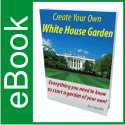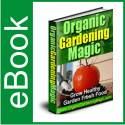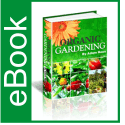Enjoy Healthy Fresh Veggies Year Round With Container Vegetable Gardening
Enjoy Healthy Fresh Veggies Year Round With Container Vegetable Gardening
Article by Trevor Dalley
Most vegetables can be grown in pots, even potatoes.
An attractive and productive pot is to grow runner beans up a wigwam of canes and surround the whole with a planting of courgettes.
Cucumbers, peppers and tomatoes will all crop well when grown in sunny locations in pots and a standard 12″ pot is ideal for this purpose.
An additional tip for growing tomatoes is to stand the base of the pots in a growing bag which will provide an extra rooting medium.
Most vegetables that grow in a backyard garden will do well as container-grown plants. Those with compact growth habits will do best. See Table 4 for suggested cultivars.
Most vegetables require a pot that is at least 45 centimetres deep and 60 centimetres wide.
If you don’t have space for large containers, you can still grow shallow root plants, such as lettuce, radishes and peppers, in smaller containers or window boxes.
Remember to consider total weight when choosing a container.
A pot filled with wet soil can be heavy.
Most vegetables need at least six hours of full sunlight every day to grow properly.
Cool season plants like lettuce, celery and broccoli can get by on a bit less.
Setting containers on caddies allows them to be easily moved towards the sun.
Other vegetables that you may want to consider for your container vegetable garden include beans and cucumbers.
You may also try hot peppers such as those of the cayenne variety.
Most vegetables like a steady supply of moisture, but not so much that they are standing in water. About an inch of water per week is usually sufficient, provided by you if Mother Nature fails to come through. Water when the top inch of soil is dry.
For in-ground crops, that may mean watering once or twice a week; raised beds drain faster and may require watering every other day.
Not all vegetables supply them well to container vegetable gardening, and so possibly you have to especially avoid planting vegetables that are on the larger size for example corn which grows to such heights who’s would require using very heavy along with large pots.
Other vegetables that won’t add them well to pot vegetable gardening include large melons perhaps even certain kinds of squashes and tomatoes which were better off being become in larger gardens.
Harvest vegetables when they are at best eating stage.
Container grown vegetables may not be as big as the same ones grown in the ground since their root space is limited to the container.
Growing vegetables in containers allow you to control the state of your growing medium.
Once you have discovered your success secrets through your gardening trials and experiments, you can just rinse and repeat it in all your future gardening projects.
You can opt for total soil-free gardening, organic gardening or a mixture of both.
A recommended recipe for good container gardening soil mixture for vegetable growing is 40% compost, 40% peat moss, and 20% perlite.
Growing vegetables in containers allow you to control the state of your growing medium.
Once you have learnt your success secrets through your gardening trials and experiments, you can just rinse and repeat it in all your future gardening projects.
You can opt for total soil-free gardening, organic gardening or a mixture of both.
My recommended recipe for good container gardening soil mixture for vegetable growing is 40% compost, 40% peat moss, and 20% perlite.
Growing vegetables doesn’t have to be difficult or time-consuming, especially if you follow the advice in this guide.
You’ll soon discover, however, that experience really is the best teacher.
As your knowledge grows, so will the rewards of this productive pastime.
Growing vegetables in containers can be a bit difficult for first-time gardeners. Even very experienced gardeners still have trouble from time-to-time.
www.bestgardeningadvice.co.uk
In this particular Gardening All Year Round program you will learn about a new process of Gardening that can revolutionize how you will employ Gardening Projects.
This unique material is undeniably one of a kind. No more will you be bogged down learning the same things time and time again. http://bestgardeningadvice.co.uk
About the Author
To discover the way to begin using a cutting edge Gardening system to become more successful in your home Diy or Gardening Design for your FREE Ebook and Gardening Tips please browse the information at Gardening.www.bestgardeningadvice.co.uk

 May 9, 2012
May 9, 2012 







